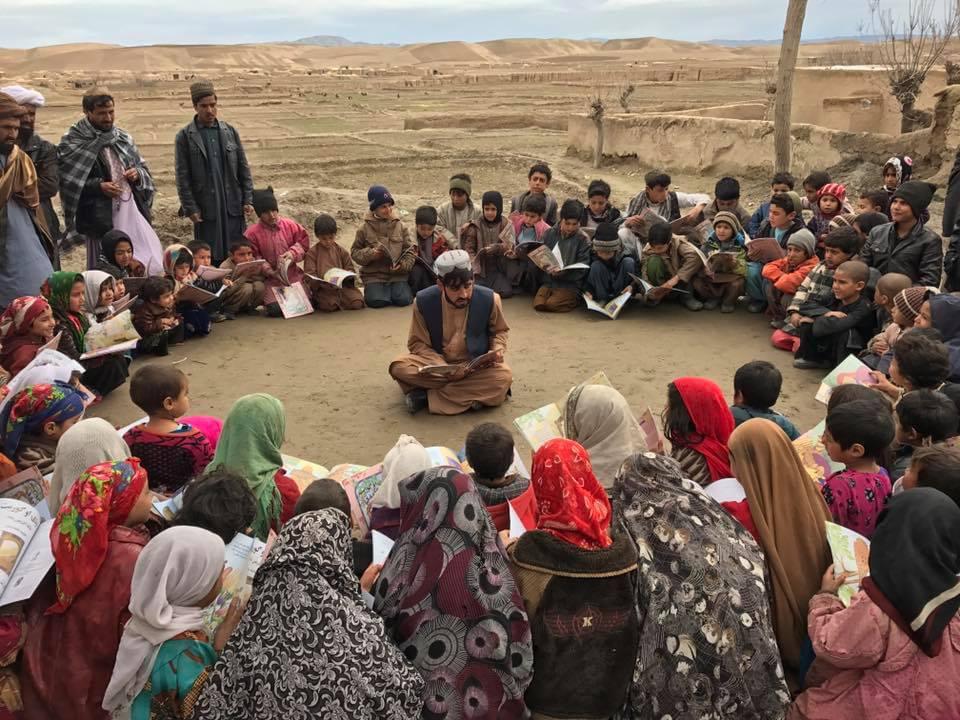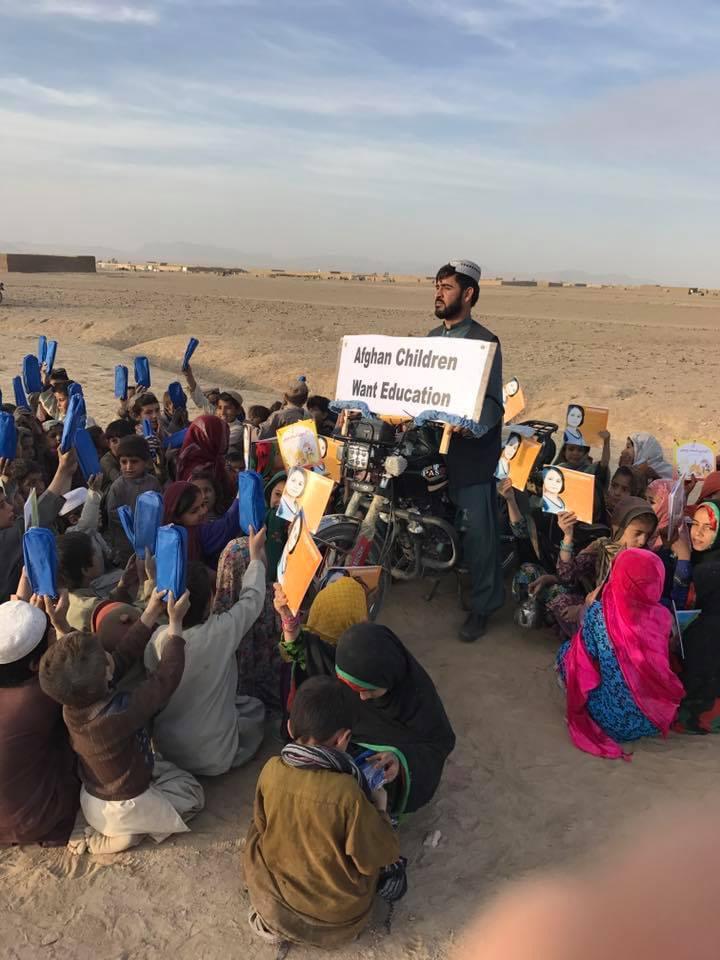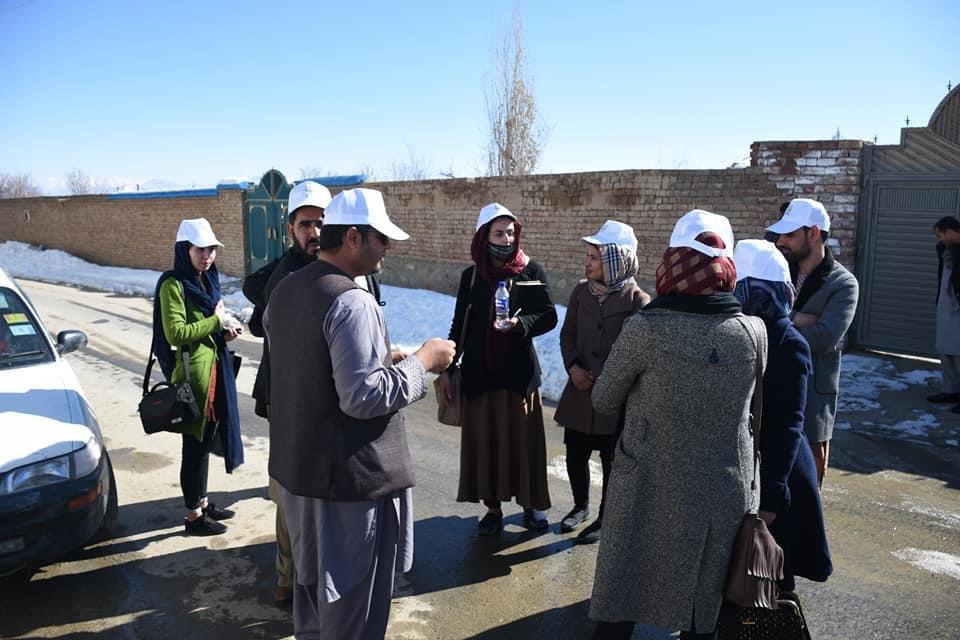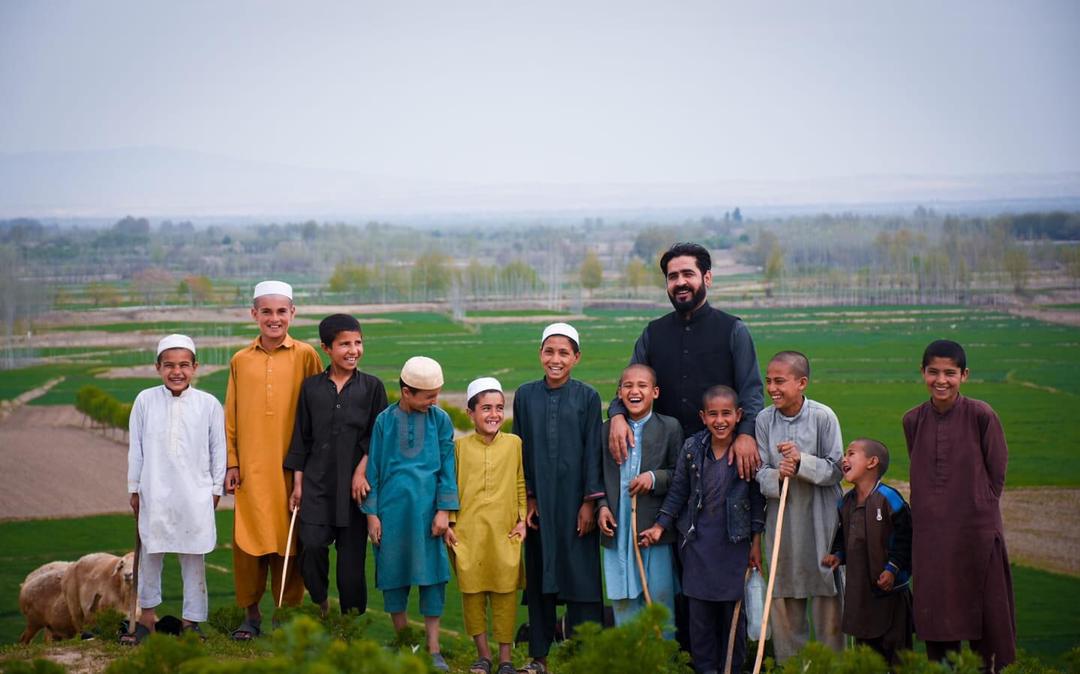‘I know I will be killed’: Afghan educator vows to keep teaching girls and boys despite Taliban victory
Allowing women and girls to continue enjoying rights to education and work is the only way Afghanistan can recover after 20 years of war, Matiuallah Wesa tells Arpan Rai


Matiullah Wesa was barely 14 when armed militants knocked at his door one afternoon, looking for his father. They came bearing a message: “Leave your house and the village within a week or else this entire family will be shot dead.”
The threat was aimed at Wesa’s father and grandfather, both of whom had been vocal in espousing the cause of educating children in Afghanistan, especially for girls.
This was 2004, relatively soon after a US-led coalition toppled the Taliban government and allowed a new civilian administration to be formed, with then president Hamid Karzai setting out on a reformist mission for his war-torn country. The road ahead opened up education for all, freedom for women to work and move around without a male guardian, an end to public executions by stoning and a new legal system in place of kangaroo courts.
All this hangs by a thread now with the south Asian country again in the hands of the Islamist militant group. And nearly two decades on, Wesa finds himself facing the same pressures as his father and grandfather, who started their own campaigning under the last Taliban government in the late 1990s.
Even as tens of thousands of Afghans rushed to leave the country in the last month, Wesa decided not to budge. The 29-year-old activist and founder of the “Pen Path” movement has been mobilising support and resources for education since 2009, and would not leave his work or the children behind.

After his family stood up to the Taliban in Kandahar province in 2004, Wesa’s family home was torched and their traditional business selling dry fruits lost forever. Aware of what they have been through, friends and even strangers have been calling to urge him to seek safety, he tells The Independent. “One day I know I can be killed for my work. I have already lost my family’s wealth and business. That does not stop me from educating every child, even in the remotest corners of rural Afghanistan.
“If you want peace, if you want an end to violence, if you want Afghanistan to stop suffering, then you have to let these children study,” he says. “Those who want Afghanistan to be peaceful and end 43 years of endless war, will have to keep all students – including girls – in school.”
Wesa’s Pen Path movement has re-opened more than 100 schools closed down by conflict, and overseen the education of 57,000 children. He was awarded the Meer Bacha Khan medal, one of the country’s highest national civilian honours, by president Ashraf Ghani in 2018 for his campaign work.
Gulali, 13, is one of these beneficiaries. She received her first set of schoolbooks, a bag and some stationery when some volunteers from Pen Path did a supply drive to her school. Currently in fourth standard (the equivalent of Year 4 in the UK), he aspires to be a pilot, but says the disruption of conflict on her education means she has already missed two key years. “If my school wasn’t closed, I would have been studying in sixth standard,” she says, adding that she doesn’t want her school to be shut anymore.
These pleas are echoed by parents. Aminullah Ghaznawi, a father of two school-going children from Ghazni province in south-eastern Afghanistan, says he is now bracing for the day when he has to fight to keep his children in school.

Also teacher by profession, Ghaznawi says: “I want my children to continue studying, and even I want to continue as a teacher. I am not going to stop.” He is among more than 2,000 volunteers in the Pen Path movement who maintain that education is the only way out of the prevailing conflict.
The country the Taliban now controls is not the same as the one it ruled in the late 1990s, and there is a whole generation of women who were just toddlers then but who are now educated, and know their rights. Zarlasht Wali, 27, tells The Independent she has a message for the Taliban. “I request the Taliban to let women and girls to go to schools and universities. More than half of our population consists of women. We need to let them stand on their feet and not be dependent on someone else like they were 25 years ago.”
She is also a volunteer and like Wesa, she decided to stay back and help in her country rather than seeking to flee, describing education as a basic human right. “It doesn’t matter that the regime has changed and we may even face threats and restrictions. I will stay here as I believe that specifically in this time my people – especially women and children – are looking towards me.”

Wesa says everyone is wary of the Taliban at present, and he knows all too well the dangers they present. At the same time, he says he is willing to facilitate talks with the group if it means allowing the education of Pen Path’s children to continue. “I am willing to send tribal leaders and religious scholars to negotiate for the education rights of these children,” he says.
But he is also mentally prepared for what happens if the Taliban simply refuse to negotiate. “Even if the Taliban wants me to stop, I will not stop. I am willing to struggle further in the coming days,” he says, adding that he plans to head out in the coming week to mobilise support for a public library.
He says that the Taliban need to realise that this is not the Afghanistan of the 1990s. “It is powered by a new and young generation, which will demand education,” he says.
The Independent has launched a petition urging the UK government to be more ambitious in its plans to take in Afghan refugees following the Taliban seizing power and withdrawal of western troops.
Afghans are now facing a similar plight. You, our readers, have already shown your strength of feeling in letters and on social media. Here’s a chance to have your voice heard by adding your signature. We thank you for your support.
Join our commenting forum
Join thought-provoking conversations, follow other Independent readers and see their replies
Comments
Bookmark popover
Removed from bookmarks